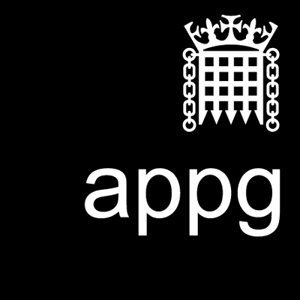Parliamentary Group Report Calls For £2 Stake Limits For Online Casinos In The UK
 A report has been released from an All-Party Parliamentary Group that has rocked the gambling industry, leading to some of the major companies losing as much as 8% off their share prices. It’s a sign of how volatile the market is, especially around online gambling in the wake of the government’s decision to reduce the maximum stake on Fixed Odds Betting Terminals from £100 to £2 last year. The report believes that the Gambling Act that was introduced in 2005 is not fit for purpose, calling it ‘analogue legislation in a digital age’.
A report has been released from an All-Party Parliamentary Group that has rocked the gambling industry, leading to some of the major companies losing as much as 8% off their share prices. It’s a sign of how volatile the market is, especially around online gambling in the wake of the government’s decision to reduce the maximum stake on Fixed Odds Betting Terminals from £100 to £2 last year. The report believes that the Gambling Act that was introduced in 2005 is not fit for purpose, calling it ‘analogue legislation in a digital age’.
That sentiment reflects what the Labour Party has been saying about gambling legislation for some time, in spite of the fact that it was Tony Blair’s government that relaxed the rules on gambling nearly a decade and a half ago. The major headlines from the report include the idea that credit card deposits should be banned, as well as calls for the online gambling industry to be forced to follow the same £2 maximum stake for slot machines in online casinos that bookmakers have had to follow since earlier in the year.
What The Panel Is Calling For
 The report from the APPG is damning for members of the online gambling industry, with specific reference to online casinos. It is an industry that brings in more than £5 billion a year and yet is still be controlled by legislation that was created when it was worth nowhere near that much. For that reason the panel that makes up the Group, which includes Conservative Iain Duncan-Smith and Labour’s Carolyn Lewis, has said that the entire legislation should be overhauled.
The report from the APPG is damning for members of the online gambling industry, with specific reference to online casinos. It is an industry that brings in more than £5 billion a year and yet is still be controlled by legislation that was created when it was worth nowhere near that much. For that reason the panel that makes up the Group, which includes Conservative Iain Duncan-Smith and Labour’s Carolyn Lewis, has said that the entire legislation should be overhauled.
Fixed Odds Betting Machines were variously referred to as ‘the crack cocaine of gambling’ and ‘a blight on society’ prior to the cut to their maximum stake, with MPs saying:
“If they are not acceptable in land-based venues they should not be allowed online”
It’s a slightly unfair statement given that the £2 maximum odds does not apply to slot machines in land-based casinos, yet the report has called for the reduction to be introduced to online slots. Former Conservative leader Duncan-Smith declared it as ‘outrageous’ that there are not limits to the maximum stakes placed online. He also said that it’s not right that people can use credit cards to add money to their betting accounts.
Gambling Commission Criticised
 The United Kingdom Gambling Commission, which is the regulator for the industry, came under extreme criticism from the report. Duncan-Smith said:
The United Kingdom Gambling Commission, which is the regulator for the industry, came under extreme criticism from the report. Duncan-Smith said:
“Gambling addiction is becoming a public health crisis. It is clear from this inquiry that the powers of the Gambling Commission need to be significantly strengthened. For too long, online gambling operators have exploited vulnerable gambles to little or no retribution from the regulator”
It was a comment that was reflected by the statement of the Group Chair, Carolyn Harris, who said that the UKGC is ‘not fit for purpose’. The Gambling Commission, meanwhile, responded via a spokesperson who said that they felt that it was ‘unfair’ that they hadn’t been given the chance to give any evidence before the report was published.
This feeling of being hard done to was furthered because the Commission believes it has taken ‘considerable action and progress on most of the areas of concern set out in the report’.
APPG Confident Of Passing New Legislation
 Whilst some market experts believe that the likelihood of the APPG’s reccomensaftions being taken on board, especially as it is only able to make the recommendations rather than enforce them, members of the Group are confident that it will be able to get new legislation past parliament in the coming months. Whilst Brexit and the upcoming general election are likely to dominate the headlines and parliament, there is certainly cross-party support to tighten up the gambling legislation that has been in play since 2005.
Whilst some market experts believe that the likelihood of the APPG’s reccomensaftions being taken on board, especially as it is only able to make the recommendations rather than enforce them, members of the Group are confident that it will be able to get new legislation past parliament in the coming months. Whilst Brexit and the upcoming general election are likely to dominate the headlines and parliament, there is certainly cross-party support to tighten up the gambling legislation that has been in play since 2005.
That support comes about because the Labour Party has long wanted to bring the Gambling Act of 2005 up to date, which is something that has been pushed by the Party’s Deputy Leader Tom Watson for some time. It’s matched by the fact that the current Prime Minister and leader of the Tories, Boris Johnson, was one of those MPs that was critical of the government when it initially decided that there should be a delay to the implementation of the FOBT stake cut. It seems to be one of the rare things in the current climate that MPs from all parties can agree on.
‘Root And Branch’ Overhaul Needed

The cross-party Group’s major responsibility was to consider ways in which those with gambling problems can be helped as much as possible. With that in mind, they feel that the best way forward is for a ‘root and branch‘ overhaul of the gambling laws that are currently in place. The general feeling is that society’s most vulnerable can only really be protected if a whole host of new measures are introduced and the job of protecting them is essentially taken away from the gambling industry itself.
The wide-ranging report was formed over a period of six months, with the MPs involved coming from most major parties. They spoke to gambling addicts, industry representatives and others in their search for the best way forward. You might remember that I wrote earlier in the year about the fact that a number of Chief Executives who represent some of the biggest gambling companies in the country turned down the chance to speak to the All-Party Parliamentary Group, enraging the MPs on the panel. Whether they’re regretting their action with the release of the report remains to be seen.
The overall feeling from the report is that the Gambling Commission and the industry as a whole is not doing enough to protect problem gamblers and society’s most vulnerable. One of the major criticisms was reserved for VIP schemes that company’s run and that offer inducements to people who have already displayed signs of having a problem in order to encourage them to gamble more.
Online casinos also don’t do enough to check the financial situation of customers, many of whom have already racked up large debts thanks to the average amount of disposable income in the UK sitting at around £450 per month.



